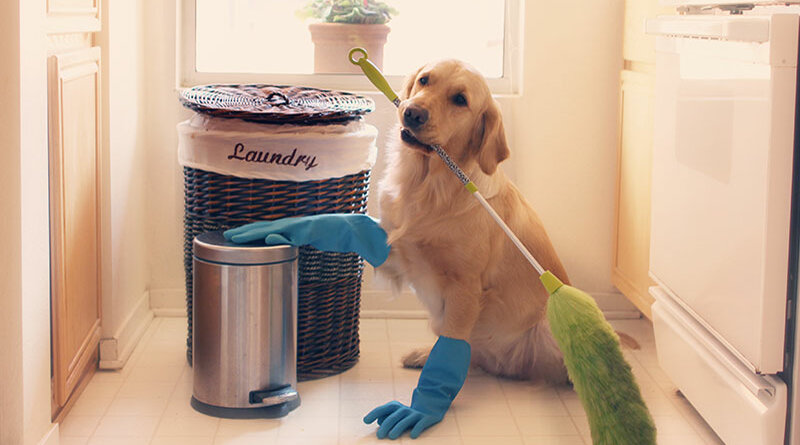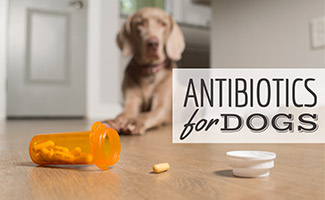How to Effectively Clean Your Home for Coronavirus
Cleaning high-traffic surfaces around your home is just one preventive measure recommended in helping prevent the spread of the coronavirus, thus we want to remind people the most effective cleaning tools for this important practice. In the past, The Bark has recommended using a mixture of vinegar and water for common household cleaning tasks—but this dog-friendly approach is NOT powerful enough to disinfect against the coronavirus. Instead, experts at the Centers for Disease Control and Prevention, and the Environmental Protection Agency offer the following recommendations for disinfecting against this virus. Also remember to be mindful of the safety of your pets in selecting your cleaning products, many can be toxic.
“Regular cleaning with normal cleaning supplies does a great job of removing all kinds of germs, not just coronavirus, from surfaces,” said Catherine Roberts, associate health editor at Consumer Reports. But commercial disinfecting products contain “pretty serious chemicals,” she warned. “They’re actually EPA registered pesticides, so as much as you can, try to use them when kids are not around because they can trigger asthma.” (we are assuming these types of products are also to be avoided for pet owners)
Here’s a list of what will and won’t work against the coronavirus, according to experts:
Bleach solution
“Bleach is very effective at killing the coronavirus, as well as virtually every other germ on the face of the planet,” said Dr. Paul Pottinger, a professor of infectious diseases at the University of Washington Medical Center. “The problem is, it’s stinky, it’s hard to use and it can damage what you’re trying to clean.”
GET THE BARK IN YOUR INBOX!
Sign up for our newsletter and stay in the know.
To protect your skin, you should wear gloves when using bleach—and don’t mix the bleach with anything but water. Here’s the CDC formula for making a diluted bleach solution: Use 5 tablespoons (1/3 cup) of bleach in one gallon of water or 4 teaspoons of bleach in one quart of water.
Keep in mind that even diluted bleach is a harsh substance and can both damage surfaces and prove harmful if swallowed by pets and others—so handle with care!
Hydrogen peroxide
Hydrogen peroxide is not as strong as bleach, thus less likely to cause damage, but it can discolor some fabrics and delicate surfaces. Experts recommend that it not be diluted but used straight. Hydrogen peroxide decomposes into water and oxygen.
Alcohol
Rubbing alcohol products that are at least 70 percent alcohol will kill the coronavirus with less potential for damage than bleach. When using rubbing alcohol, it is recommended not to dilute it. Consumer Reports says rubbing alcohol is safe for all surfaces, but can discolor some plastics.
Soap and water
A simple solution and effective in most cases—a few drops of dish soap to eight ounces of water is a good ratio. The soap removes the viral particles attached to hard surfaces, suspending them in the water and allowing them to wash away.
Warning: Vinegar or vodka are ineffective against the coronavirus
Despite our past recommendations of using diluted vinegar as a dog-friendly cleaning solution—there is no evidence that vinegar is an effective disinfectant against coronavirus.
And despite some social media claims, vodka is typically not strong enough to sanitize against germs, including coronavirus. The concentration of alcohol in most vodkas fall well below the 60 percent level recommended by the CDC (for hand sanitizers in comparison).
We typically advocate for the use of all-natural and mild cleaning solutions that can be effective for cleaning away dirt and grime while being non-toxic to pets but killing the coronavirus is a completely different task and requires more powerful cleaning tools like the ones detailed above.




